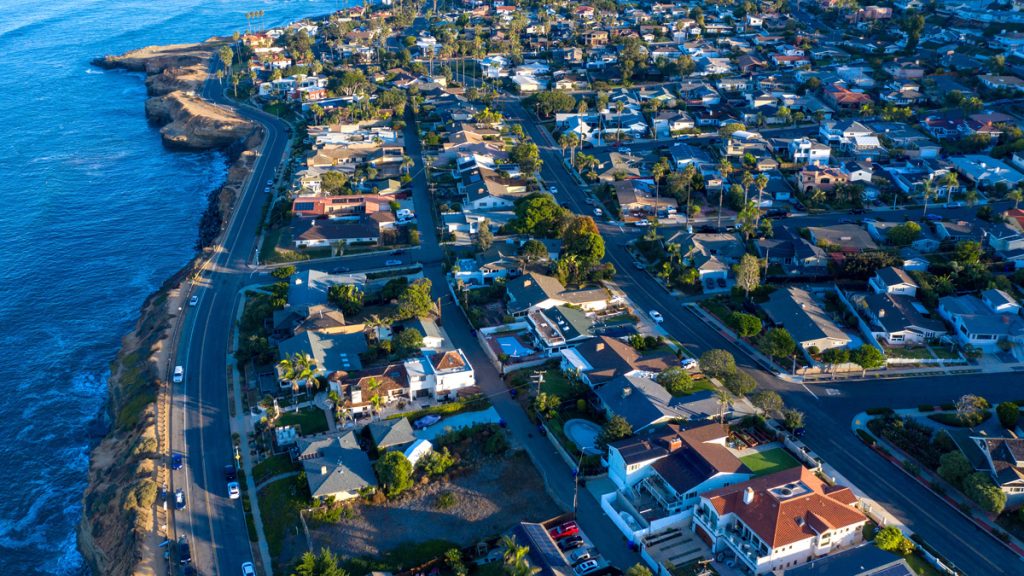The San Diego City Council approved a new ordinance in May 2022 that institutes a cap on the number of vacation rentals the city will allow at any given time. The law aims to crack down on properties that host rowdier events and to bring some of those homes back on the market to help with the current citywide housing shortage.
The ordinance, authored by City Councilwoman Jennifer Campbell, establishes a lottery system that will be put into place to determine which grants homeowners a two-year license to rent their homes to vacationers for more than 20 days per year. Homeowners who have not received any noise complaints or other issues will be given priority in the selection process. Lottery winners must pay fees to obtain a permit.

The city plans to cut roughly half of the current home vacation rental inventory. The cap is presently set at 1 percent of homes – about 5,400 residences through the city. The ordinance stipulates that dedicated code enforcement officers enforce the law. Plans are in place for 16 new officers to be hired to police the new system beginning in the fall.
The recent rise of online vacation rental companies like Airbnb has created the need for regulations. Noise complaints, specifically from events like bachelor and bachelorette parties, coupled with the city’s low housing stock causing a spike in home prices, have pushed the issue to the forefront in recent years. The regulation effort led to the preliminary law passed in 2021 that broke up rentals into specific tiers. The move made it easier to target problem rentals and to avoid removing vacation rentals for families.
New Law Comes After Many Years
According to Councilwoman Campbell, San Diegans have been asking for common sense and sanity on short-term vacation rentals for years. She said the new law would keep neighborhoods safe and livable by capping short-term rentals and creating an enforcement arm needed to hold properties accountable.
“With today’s vote approving San Diego’s first-ever short-term rental rules, we’ve turned the corner on one of San Diego’s thorniest challenges,” Councilwoman Campbell said in a statement. “San Diegans have been asking for common sense and sanity on short-term vacation rentals for years – and now their voices are finally being heard. This new law will keep neighborhoods safe and livable by capping short-term rentals and finally create the robust enforcement arm needed to hold nuisance properties accountable.”
Councilwoman Campbell says the plan is simple.
“We have four different tiers, and tier three is for those who have a whole-home rental in the city of San Diego,” she said. “They would have to join a lottery to get the license if there’s more than 5,400, which is the cap at this time.”
Councilwoman Campbell said those who live in Mission Beach and own a whole home would have their own lottery.
“It’s 1,080 at this time,” she said. “And so, if there are only 1,080 who apply, then they will all get a license if they are good actors.”
Fixing Past Mistakes
New licenses are expected to be issued by the end of 2022, with the regulations coming into law in early 2023.
The move alleviates some of the blame the short-term rental business has received for the affordable housing crisis that has plagued the city for over a decade. For years, the short-term rental industry has advocated for San Diego officials to crack down on irresponsible owners who have given rental owners a bad name. However, for some, the law will not do enough to curb the issues.
Juan Ramos, a neighborhood watch organizer and community advocate, says big parties are still a concern because there are no limits on permits for less than 20 days per year for a rental. He says the new law is for complete house rentals at the beach or other high-wealth areas, so it protects the interests of the rich more than helping property owners.
“This is not about the housing crisis,” Ramos said in a recent interview. “This is just a way to get rid of troublesome rental locations because they were being a bit too loud, and their neighbors didn’t like people having a good time. And those people will now be renting more in our neighborhoods, giving us the problems they didn’t want.”
The city plans to review the regulations yearly to see if changes are needed.
The Short-Term Residential Occupancy (STRO) license application period will begin in Fall 2022. License fees for Tier 1 and Tier 2 licenses will also be due at the time of application submission. License fees for Tier 3 and Tier 4 licenses will be due within 10 days of notification of lottery selection. All license fees are non-refundable. There are no exceptions. The application period for Tier 3 and Tier 4 licenses will be open for a limited time. Therefore, applicants must understand the application requirements and gather all necessary information to prepare for the period.




Leave a Reply